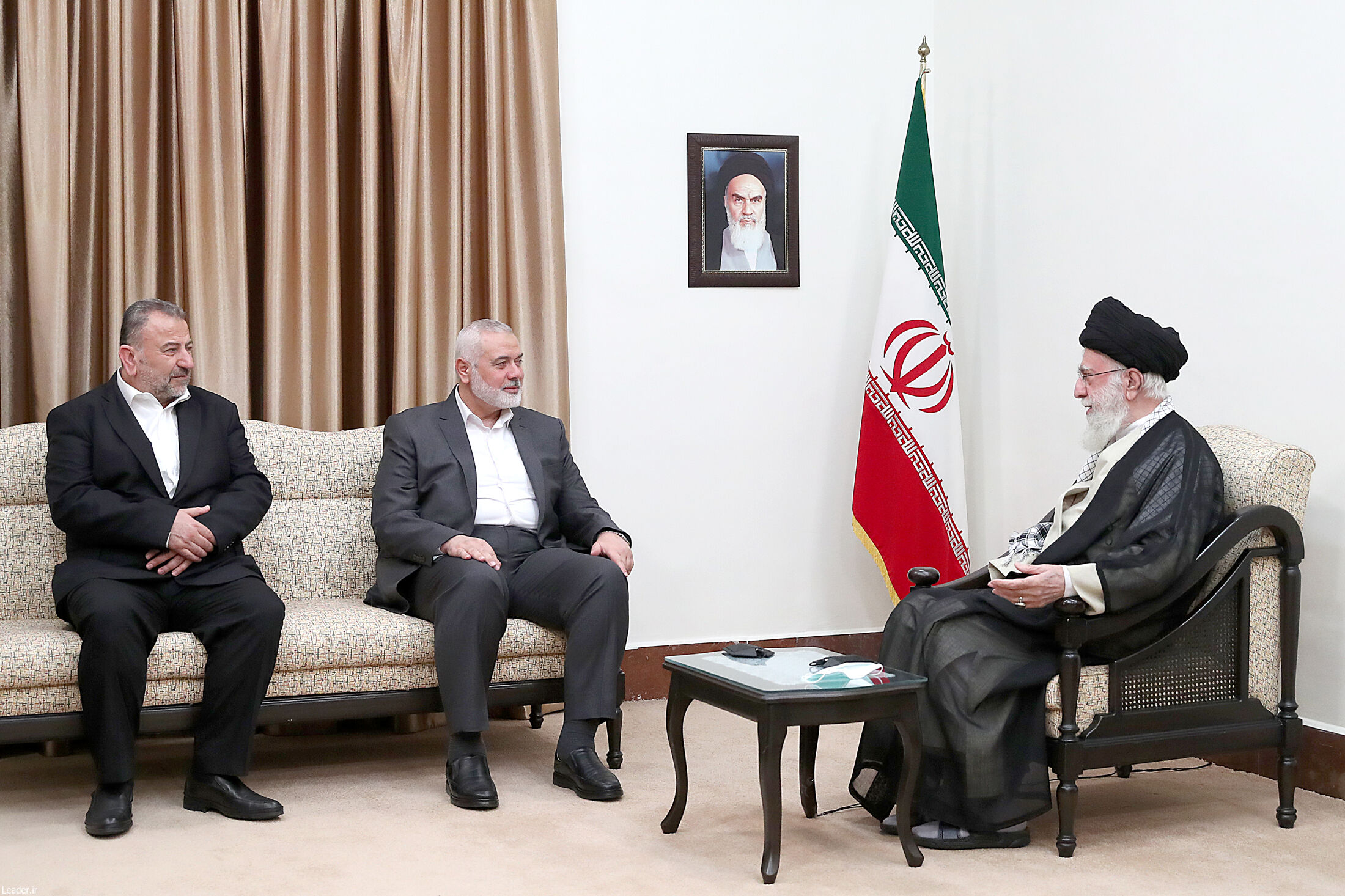Israel and the United States are currently focused on a critical question: Is Iran directly involved in the military operation carried out by the Al-Qassam Brigades, the military arm of Hamas, on October 7th of this year? While there are increasing accusations, both direct and indirect, against Iran for providing substantial support to this movement, confirming its role in planning and preparing the operation remains a subject of significant debate.
Irrespective of the answer to this question, whether Iran was involved in the operation or caught by surprise and to what extent, it’s evident that Iran is undergoing a rigorous test due to the new developments resulting from the operation and the subsequent Israeli military escalation in the Gaza Strip. This escalation appears to be paving the way for a ground intervention aimed at achieving Israel’s primary objective, which is the removal of Hamas from power.
Perhaps Iran’s reluctance to take a clear stance on the events on the ground can be explained by the mixed messages it’s conveying. These messages range from de-escalation to escalation and are directed toward both Israel and the United States.
Multiple Reasons
There are several reasons that can explain the current predicament facing Iran in light of the following considerations:
- Israeli Military Escalation and Iran’s Dilemma: Israel remains committed to intensifying its military operations in the Gaza Strip, with preparations underway for a ground intervention in the region. This places pressure on Iran to become involved, particularly considering that Hamas is one of the groups receiving significant support from Iran. This situation aligns with Iran’s long-standing strategy of maintaining an “axis” to manage conflicts with its regional and international adversaries.
However, avoiding such intervention could come with a high cost. It would signal Iran’s retreat from supporting its regional allies in the face of the pressures and threats they are currently experiencing. This shift would contradict the messages Iran has conveyed in the past. Additionally, it may lead to delayed consequences, with certain factions and militias exploring other regional options to avoid a similar predicament in the future.
- Navigating the Path to Military Confrontation: Since the end of the Iran-Iraq war (1980-1988), Iran has consistently strived to avoid direct military confrontations. The potential for Iran’s involvement in such a confrontation has increased due to direct accusations from Tel Aviv or Washington regarding its role in the military operation carried out by the Al-Qassam Brigades on October 7th of the previous year. This shift may lead to new developments on the ground that may not align with Iran’s interests, irrespective of the ultimate outcome of the confrontation.
Iran has favored a strategy of “proxy warfare,” entrusting its regional allies with the task of managing conflicts on its behalf against its adversaries. This approach serves to elevate the costs of any attempts to drag Iran into a direct military confrontation or to target its interests. However, direct involvement in a confrontation could disrupt these calculations, leaving Iran with limited options and diminishing its capacity to play the role it currently fulfills by exploiting the escalation of crises in various countries, including Syria, Iraq, Lebanon, and Yemen.
- Ongoing Security Operations in Iran: One potential consequence of the current conflict in Gaza is the increased risk of security breaches in Iran, particularly after the conclusion of the Gaza war. In recent times, certain Iranian nuclear and military facilities have been targeted, with attempts to disable or destroy specific components. A prominent example is the Natanz reactor, a critical element of Iran’s nuclear program, which was subjected to consecutive attacks on July 2, 2020, and April 12, 2021. Iran has directly accused Israel of being responsible for these operations.
It is important to note that these incidents have decreased over the past two years. Iran attributes this decline to the enhanced security measures it has implemented to safeguard these facilities. However, the possibility of these operations resurfacing in the future cannot be ruled out, particularly since Iran remains committed to the development of its nuclear program. Additionally, Iran has recently gained an advantage through the nuclear agreement, which lifted international sanctions on its missile-related activities on October 18, after eight years from the adoption of the Joint Comprehensive Plan of Action, also known as the nuclear agreement, on October 18, 2015.
- Escalation of Iran’s Domestic Crisis: The current conflict in the Gaza Strip is perceived as an unwelcome development by Iran, particularly within the context of its domestic situation. While Iranian authorities successfully managed the crisis stemming from protests that extended for approximately five months, starting from September 2022 and lasting until January 2023. These protests were sparked by the death of 20-year-old Kurdish girl, Mahsa Amini, who died while in detention by the morality police for failing to comply with hijab rules. However, it is important to note that the underlying triggers of that crisis persist, potentially awaiting further developments that could reignite it.
In this regard, any unpredictable action taken by Iran concerning the events in Gaza may come at a substantial cost. This is due to the escalating tension between the regime and the Iranian public, coupled with growing dissatisfaction among a segment of citizens caused by worsening economic and living conditions. This is especially true since they link these issues to Iran’s continued support for its regional allies at the expense of addressing the root causes of these problems.
- Anticipating the Consequences of Involvement by Other Parties: One of the potential outcomes of the involvement of other parties, notably Hezbollah, which has engaged in limited confrontations with Israel as part of mutual deterrence efforts, is a matter of concern. Expanding these confrontations could have substantial costs, as it is highly likely that Israel would respond with extensive attacks within Lebanese territory, possibly surpassing the scale of what transpired in 2006. This doesn’t align with the current strategies of Tehran and Hezbollah, particularly given the accusations they face regarding their alleged role in the ongoing presidential vacancy crisis following President Michel Aoun’s term expiration on October 31, 2022.
Exercise of Cautious Anticipation
In this context, Iran may perceive that expeditiously working to bring an end to the ongoing conflict in the Gaza Strip through the negotiation of a ceasefire agreement in coordination with international powers such as Russia is the most prudent course of action. This approach could potentially help Iran overcome the challenging circumstances it currently faces while simultaneously averting the significant costs associated with other potential scenarios for the Gaza conflict.


